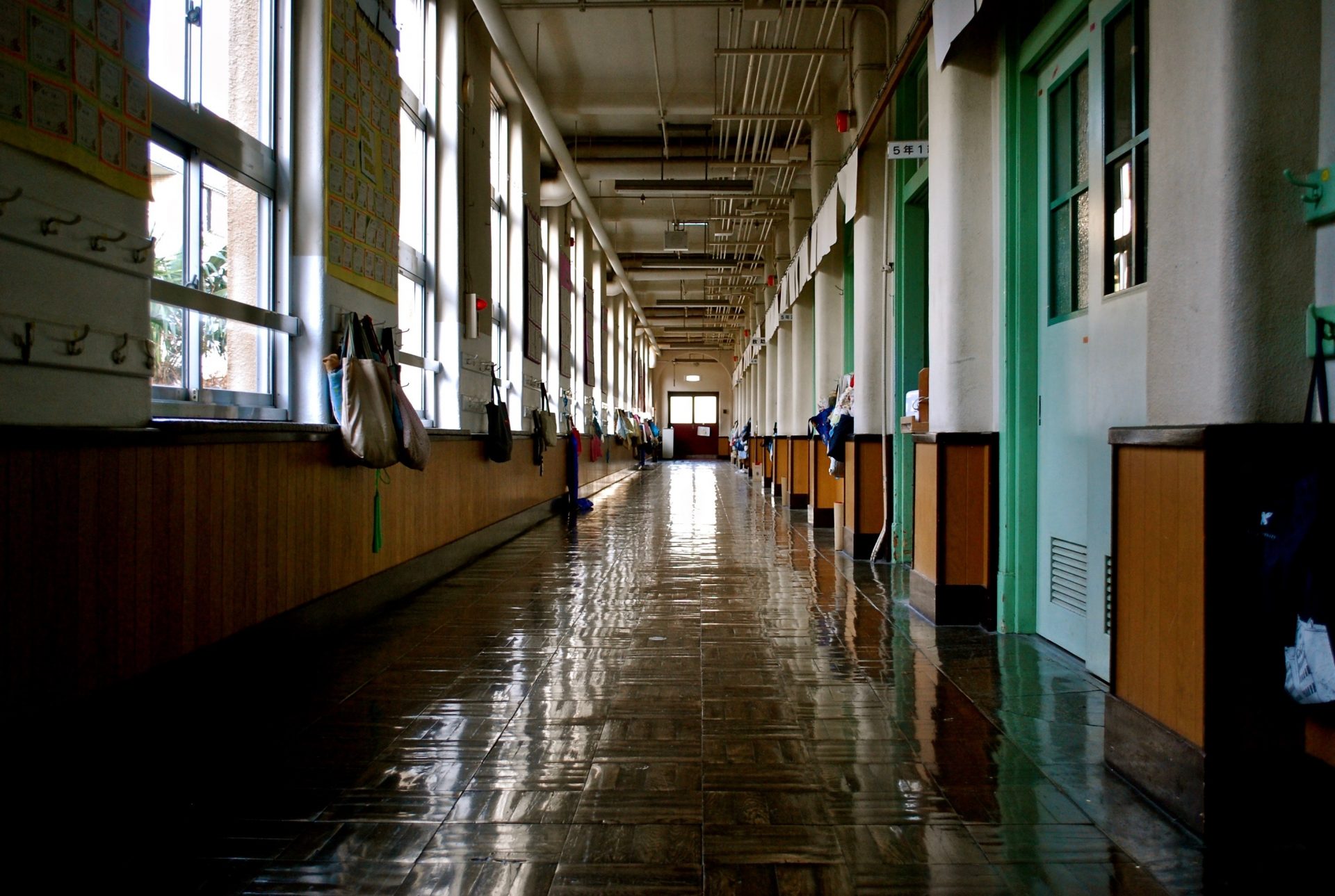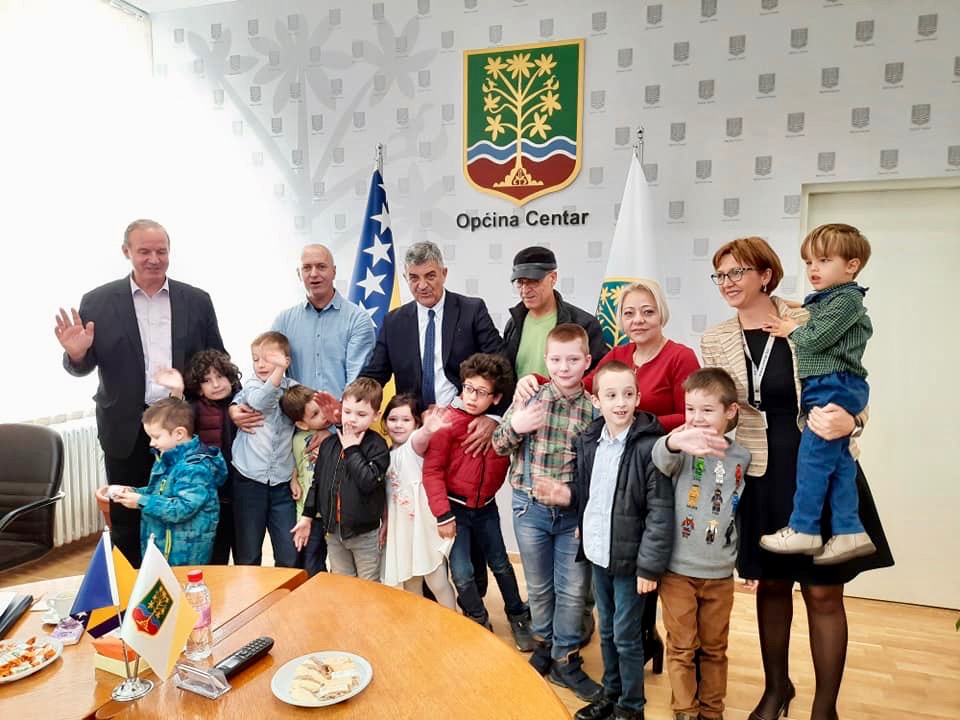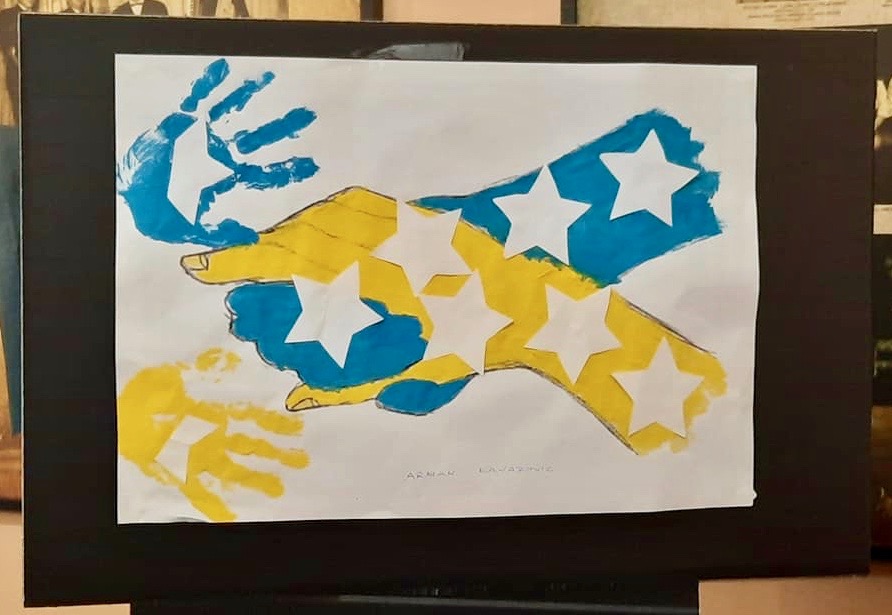
Mahmut is a nine-year-old boy with autism. His mother, Samija, noticed he was having problems when he was just one and a half years old. Until that time, he had been developing like any typical child.
I didn’t need help, I needed understanding.
Editor’s note: Recently, photos were released showing the terrible conditions within the Pazaric Institute, a care home for children with special needs, after the ruling parties refused to address the problems. This action sparked protests across the country. In light of the recent events, Balkan Diskurs has been working on a series about the challenges faced by Bosnian children with special needs and their families. These are their stories. To begin at Part I of this series, click here.
Mahmut is a nine-year-old boy with autism. His mother, Samija, noticed he was having problems when he was just one and a half years old. Until that time, he had been developing like any typical child. It wasn’t until the age of four that he was diagnosed with autism, and this was only after traveling to Belgrade, on his mother’s initiative, to see a specialist. In the two years leading up to Mahmut’s diagnosis, repeated breakdowns in communication between Samija and medical staff had led to a deterioration in his condition.
Since Mahmut was born, Samija has been unable to work; depriving her of financial independence, a social life, and a sense of purpose outside of her role as her son’s caretaker. Caring for her son has become an exhausting twenty-four hour a day occupation, for which she has received no support. She’s resigned to her circumstances, stating with an exasperated sigh, “I will never work, I will never have a pension.” From inept caretakers and medical staff to defective state facilities, a lack of support has become a recurring theme in her life when it comes to caring for an autistic son.
Samija has no choice but to continue her battle with BiH’s inadequate and dysfunctional government, medical, and education systems. Were she able to afford it, she would be willing to uproot her life and go elsewhere. Instead, she’s trapped in a society where the State provides little or no assistance to families with autistic children and where very few people have the salaries necessary to pay for private assistance.
Mahmut’s early years were dominated by regular and abrupt changes, moving from one kindergarten class to another in his mother’s search for an adequate learning environment. He was isolated, both from other children and from his teachers — at one kindergarten, the teachers even managed to lose track of him. He was often teased by the other children and, without any viable outlet for his distress, would take his frustrations out on himself. Despite the many challenges, however, Mahmut often achieved the best possible grades at whichever school he was attending. Thankfully, after two years of searching, he is now at a school that recognizes his autism and can provide him with the support necessary for his healthy development.
Similar to Samija’s search for a diagnosis for Mahmut, improvements in his condition only came as a result of her independent persistence and determination. She went directly to the Minister of Education, who then referred Mahmut to his current school. Samija believes that this is the best yet, not only because the facilities are markedly better than those he had previously been enrolled in, but because Mahmut now has a teacher that understands him and works to accommodate his particular needs.
Samija explains that the most difficult aspect of her and Mahmut’s journey, however, has been society’s reaction to his autism; she said, “the main thing I needed was understanding from people.” This makes sense: a common understanding and empathy for children with special needs is a precondition for a functional support system. Social stigmatization mirrors the isolation those living with disabilities are already experiencing from the State and undermines any real progress towards such an ideal. Samija regularly feels judged by people who think Mahmut’s behavior is a result of bad parenting. Consequently, Samija takes pride in the elements of her son’s appearance that she can control, making every effort to ensure he is presentable and dressed in the best clothes. She reserves special praise for Colibri, an association founded by parents of special needs children, because they are seemingly the only people who show a true understanding of the condition children like her son face.

Even with the existence of groups like Colibri, however, Samija knows that she will still have to predominantly rely on herself and the support of her family to overcome the challenges that still lie ahead. Left to fend for herself, she somehow always manages to find a way to ensure her child has the best possible upbringing, but this comes at a price: she often goes months without meeting anyone for a coffee and has gone three years without going to the movies. And although she may feel she allows her son to watch more cartoons than he should, at least she knows he’s safe.
It’s not surprising that Samija’s biggest fear is what lies ahead. She is consumed with uncertainty about how society, and the State, will react to Mahmut as he transitions into adulthood. This has developed into a paranoia, of sorts, about her own life. What will happen to him if the system does not improve and she is no longer on this earth to fight for and protect him?
Samija’s fear of her separation from Mahmut is, indeed, a logical response to the harsh reality in which she finds herself – since “the country does nothing”, she is responsible for everything. And, as the conversation draws to a close, it is clear that her fears can only be assuaged if social recognition and understanding of autism become commonplace.

**Note: The names have been changed to protect the privacy of the individuals.
Part I – Educational Exclusion of BiH’s Most Vulnerable: An Introduction
Visit the following links to learn more about the work of EDUS and Colibri:
http://edusbih.org/en/
https://www.facebook.com/CentarColibri/








